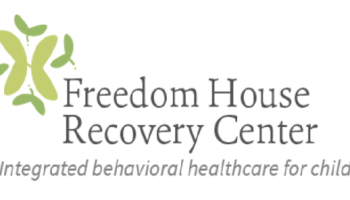PORT HEALTH | Greenville Facility Based Crisis Program
About PORT HEALTH | Greenville Facility Based Crisis Program
St. Elizabeth Medical Center Behavioral Health Center, located in Edgewood, Kentucky, provides behavioral health services for children, teenagers, and adults. Their services include medication-assisted treatment (MAT), inpatient treatment, outpatient treatment, and aftercare services. Specialized support is available for clients with co-occurring addictions and mental health disorders. Telehealth appointments are available.
Their MAT program helps clients withdraw from alcohol, opioids, and other substances under medical supervision. A multi-disciplinary team of providers will monitor each client’s detox progress and may administer FDA-approved addiction medications to reduce the physical symptoms of withdrawal, minimize cravings, and lessen the risk of relapse.
In conjunction with MAT, they also offer adjunctive services to help clients identify and work through the underlying issues related to their addiction. Available services include individual and group therapy, recovery education, peer recovery groups, and related resources. Providers will perform individualized assessments to understand each client’s condition and the level of care required. Inpatient and outpatient treatments are available, along with aftercare services to help clients reintegrate into society. Providers can make connections to local, community-based resources that can assist with transportation, transitional housing, career counseling, and similar services.
St. Elizabeth Medical Center Behavioral Health Center is in-network with many major insurance providers, including Ambetter, Aetna, BlueCross/BlueShield, Essence Healthcare, Poppins Health, and others. They also accept Medicare and Medicaid. Speak with your individual provider to verify coverage because out-of-network benefits may vary.
Saint Elizabeth Medical Center Behavioral Health Center is accredited by the Commission on Accreditation of Rehabilitation Facilities (CARF).
| Levels of Care | Detox Service Setting | Programs | Payment Options | Medications Offered | |||
|---|---|---|---|---|---|---|---|
|
In outpatient therapy, you’ll attend therapy sessions several times each week while living at home. This is ideal if you have a strong support system and a lower risk of relapse. Outpatient treatment offers flexibility to maintain work, school or family obligations. |
An intervention is a structured and professionally guided conversation with an individual who is struggling with addiction. During the conversation, family and friends will encourage you to seek treatment. This is often a pivotal step for those resistant to getting help. |
Inpatient and residential programs provide round-the-clock medical and emotional support as you live at the treatment facility. This level of care may be recommended if you have severe addictions or mental health conditions since it removes outside distractions and allows you to focus solely on therapy. |
|||||
|
Inpatient detox occurs in a dedicated treatment facility. You’ll live there around the clock and receive intensive medical support and supervision to help manage your withdrawal symptoms. It is suitable for individuals with moderate to severe addictions as it ensures a stable detox environment. |
Medication assisted treatment combines medication and counseling to manage withdrawal and reduce cravings for opioid and alcohol addiction. Medications may include methadone, buprenorphine or naltrexone. MAT is tailored to your needs so you can actively participate in your treatment journey. |
||||||
|
Adult programs address the substance use and life challenges specific to adults. Therapists can deliver sessions in individual, group and family settings. Services often include job support and life skills training in a structured environment. |
Young adult programs are designed for individuals who are transitioning into adulthood. Topics of discussion typically include identity, independence and peer relationships. Providers may also offer life skills training and career support. |
Men's programs address substance use while also considering the social pressures, family roles and mental health concerns that are specific to men. You’ll learn healthy coping mechanisms as you build emotional resilience and develop communication skills. |
Women's programs offer a safe and supportive space to focus on gender specific issues such as trauma, family roles and mental health conditions. Therapists tailor the sessions to address women's needs and foster empowerment in a healing and nurturing environment. |
||||
|
Self Pay
|
Medicaid
|
Medicare
|
State Family Services
|
Private Insurance
|
Military Insurance
|
Sliding Scale Payment
|
Payment Assistance
|
|
Methadone
|
Buprenorphine
|
Levels of Care
In outpatient therapy, you’ll attend therapy sessions several times each week while living at home. This is ideal if you have a strong support system and a lower risk of relapse. Outpatient treatment offers flexibility to maintain work, school or family obligations.
An intervention is a structured and professionally guided conversation with an individual who is struggling with addiction. During the conversation, family and friends will encourage you to seek treatment. This is often a pivotal step for those resistant to getting help.
Inpatient and residential programs provide round-the-clock medical and emotional support as you live at the treatment facility. This level of care may be recommended if you have severe addictions or mental health conditions since it removes outside distractions and allows you to focus solely on therapy.
Detox Service Setting
Inpatient detox occurs in a dedicated treatment facility. You’ll live there around the clock and receive intensive medical support and supervision to help manage your withdrawal symptoms. It is suitable for individuals with moderate to severe addictions as it ensures a stable detox environment.
Medication assisted treatment combines medication and counseling to manage withdrawal and reduce cravings for opioid and alcohol addiction. Medications may include methadone, buprenorphine or naltrexone. MAT is tailored to your needs so you can actively participate in your treatment journey.
Programs
Adult programs address the substance use and life challenges specific to adults. Therapists can deliver sessions in individual, group and family settings. Services often include job support and life skills training in a structured environment.
Young adult programs are designed for individuals who are transitioning into adulthood. Topics of discussion typically include identity, independence and peer relationships. Providers may also offer life skills training and career support.
Men's programs address substance use while also considering the social pressures, family roles and mental health concerns that are specific to men. You’ll learn healthy coping mechanisms as you build emotional resilience and develop communication skills.
Women's programs offer a safe and supportive space to focus on gender specific issues such as trauma, family roles and mental health conditions. Therapists tailor the sessions to address women's needs and foster empowerment in a healing and nurturing environment.
Medications Offered
Amenities
Contact
- Monday 8AM - 5PM
- Tuesday 8AM - 5PM
- Wednesday 8AM - 5PM
- Thursday 8AM - 5PM
- Friday 8AM - 5PM
- Saturday Closed
- Sunday Closed

Lauren wears many hats, and works as a holistic deep tissue massage therapist, content strategist, and copywriter. She’s been writing copy and dreaming up content for a number of brands for almost 10 years, having worked with a mixture of B2B and B2C brand. Some of her more notable clients include adidas, Gucci, Pepsi, and Hotels.com. A skilled editor and copywriter, she also enjoys planning content for social media and brand marketing campaigns.

Born and raised in the foothills of the Smoky Mountains, Terri Beth has witnessed the impact of addiction on families and communities. As an educator, scholar, and writer, she is committed to increasing public awareness of substance abuse and mental health issues and decreasing the stigma that too often accompanies them. She holds a doctorate in English literature and has been writing about mental health and addiction recovery for more than a decade.




